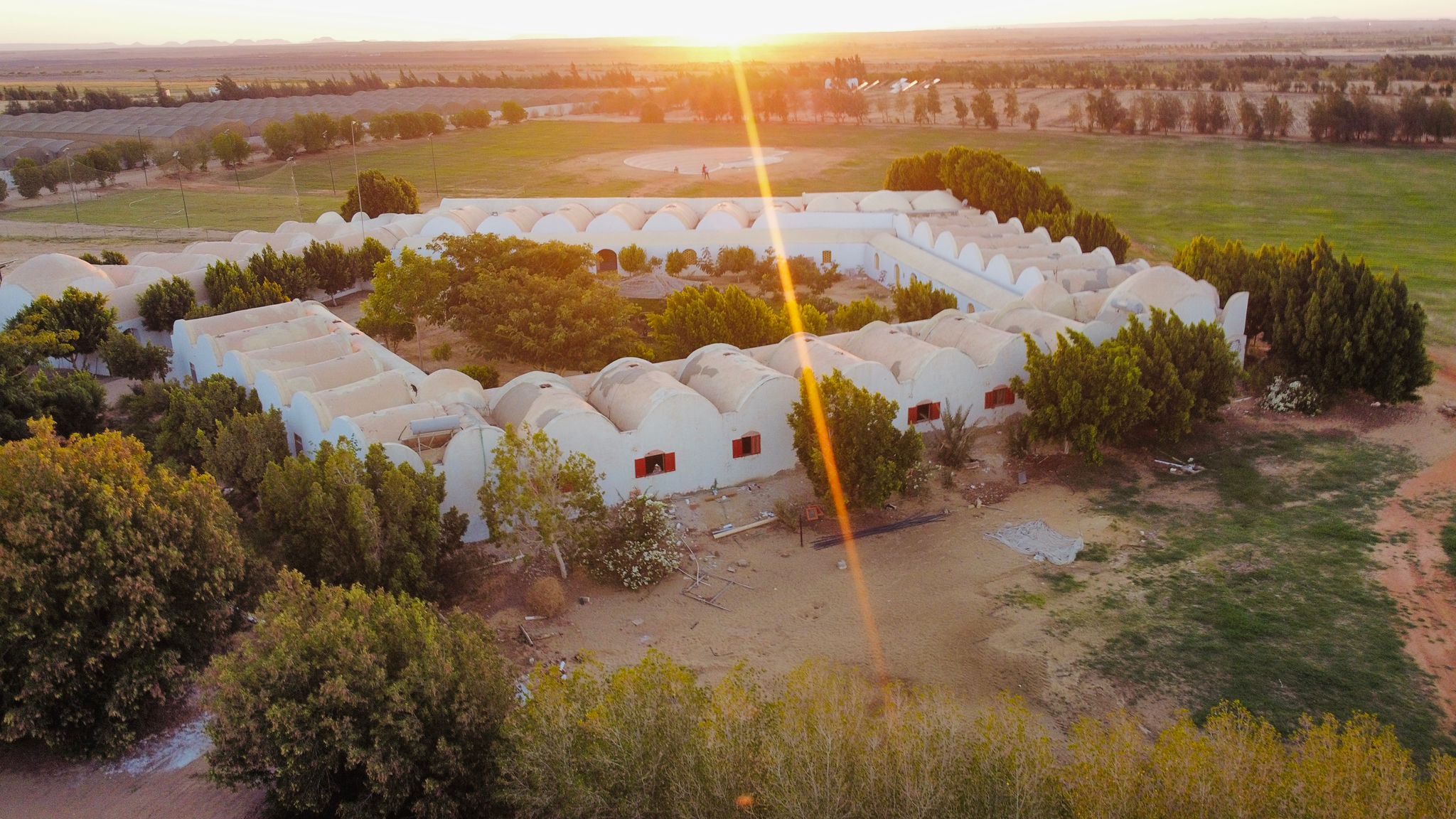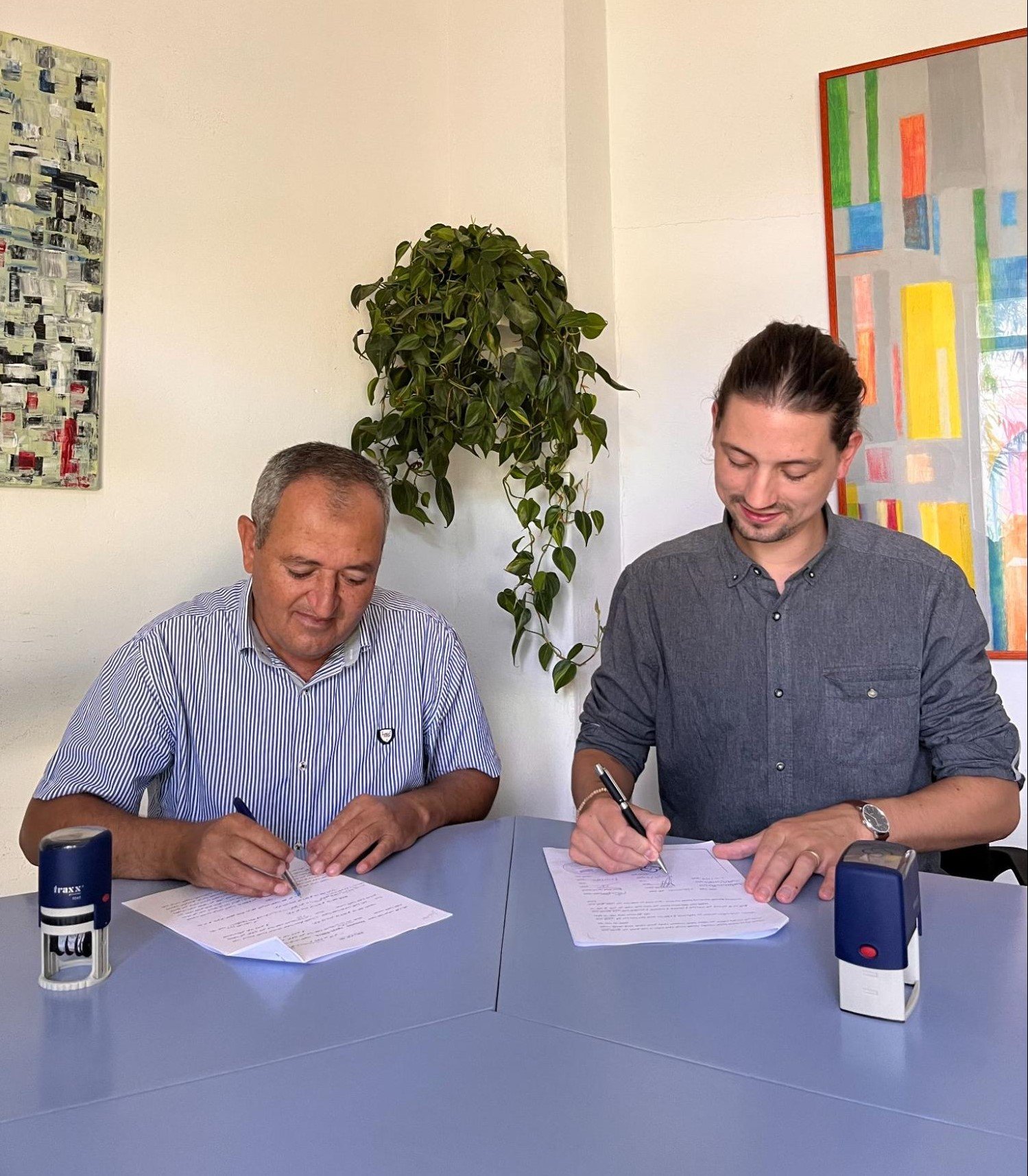EBDA in August 2022

Economy of Love and its progress throughout the status of quo
EoL is making progress in different topics in order to enhance the knowledge and raise people’s awareness about the importance of carbon emissions reduction and offsettin. EoL launched a new EoL-PGS standard to support Egyptian farmers to go sustainable and reduce carbon emissions by sequestering it into the soil. On the other hand, Economy of Love has been published on their website, the EoL-funding program. Eventually the Bee Project for sustainable environment has been published on the EoL website as well. For further information and details, Visit the link https://www.economyoflove.net/fund/
Economy of Love announcement regarding COP27 in Sharm-el sheik 2022
Imagine an agriculture of the future which
- Mitigates climate change
- Promotes fairness and well-being of farmers by fair compensation
- Fosters affordable sustainable and healthy food consumption
To promote the development of climate-friendly agriculture and thus conversion towards organic/biodynamic farming in Egypt, the distribution of CO₂ certificates has to be accelerated. EBDA is seeking long-term partners who are committed to participating in this transformation towards making a positive contribution to healthy, vital, and ethically sustainable agriculture. We are also looking for permanent partners who are willing to support the pre-financing of the transition. You can read more about it via the document link.
New Potential Supporter of the 40K farmers transition
Justus Harm, director of the Economy of Love standard was interviewed by the biodynamic association of Italy. the interview includes many topics such as the beginning of economy of love, EBDA and also the general interest of biodynamic agriculture in Egypt. For those seeking a more profound understanding of this riveting dialogue and the compelling future prospects it unveils, the complete article is accessible through the following link: https://www.biodinamica.org/l.
Introduction of the EoL standard in SustinAfrica event at Heliopolis University
Economy of Love participated in the event hosted by the SusIn Africa project in Heliopolis University, in Cairo, Egypt. By Justus Harm, the co-founder of the Economy of Love standard and the EBDA deputy director. There was a presentation introducing the EoL standard by him and the Economy of Love Carbon Credits scheme and EoL fun. Raising awareness to everyone about the importance of the unique qualities covered in the standard. Justus also shared with the attendees how companies can offset or inset their carbon emissions in their own supply chain and at the same time support Egyptian smallholder farmers.
EBDA contract with farmers for funding transition
With both Justus Harm and Ibrahim Saad in the EBDA office signing contracts with a number of farmers for receiving microloans from EBDA.

Medlinks project Meeting in Bologna
The second meeting of medlinks in Bologna, Italy was conducted there for two days. Justus Harm and Shady Youssry attended the meeting to discuss and work on improving short and export oriented supply chain efficiency, transparency and sustainability. Demeter Egypt, Economy of Love, sekem development foundation and Heliopolis University have been involved in the project also partners to co-develop a blockchain based platform for helping sustainability standards such as Economy of Love standard to upscale their impact in Egypt and the Mediterranean countries.
Partnership between Amisol and CFC and EoL
The Economy of Love with Carbon footprint center in Heliopolis University signed a contract with Amisol, a travel agency focusing on sustainable tourism in Egypt. This contract was a shift happening in the market thriving towards sustainable businesses to offset their carbon emissions with holistic co-benefit carbon credits generated in EoL-verified farms. It was a pleasure for both sides. The contract was signed by Justus Harm and Thoraya Seada in attendance of Helmy Abouliesh, the chairman of SEKEM development foundation.
Partnership between CFC and ECC
Regarding the world’s status quo about carbon footprint and carbon emission reduction. An agreement has been made between the Carbon Footprint Center in Heliopolis University and the Egyptian Carbon Center to implement carbon reduction and sequestration and upscale that concept and raise awareness for all Egyptian farmers and all people as well. This MOU will Address Carbon footprint Accounting for Industrial, Agricultural, & Financial institutions. Both teams are so excited about this MoU, with COP27 Coming in November in Egypt. The Private Sector should be ready for this Event addressing Climate Change.
Four days intensive training for the EBDA new engineers
(Coordinated by: Hend Hany)
On August 8th, 2022
a training session was held for engineers from various governorates. Dr. Hassan introduced each engineer and provided a list of rules for the training. Participants shared their expectations and goals for the training, with 25 head titles describing their needs and expectations. The first session divided participants into five groups to answer questions about food requirements and agricultural practices. Dr. Hassan then introduced Agro ecosystems and Natural ecosystems, discussing their definitions, benefits, and applications in various fields. The final session focused on Agroecology and Alternative Agriculture, focusing on alternative agriculture, its history, and the risks associated with chemical pesticides and fertilizers. Dr. Hassan then engaged in an open discussion with participants to discuss their reflections.

On August 9th, 2022
Dr. Hassan conducted a training session on soil fertility and health. He asked participants about their knowledge of soil and its composition, and divided them into groups with missions to collect soil samples. The session focused on soil living ecosystems, filirity, and soil formation. Dr. Hassan also discussed composting and its ingredients. The participants visited a compost site and visited an animal husbandry site to learn about organic and biodynamic standards. Dr. Hassan played “The Nut Game,” dividing participants into five groups to understand sustainability and consumption. The game involved questions about carbon cycle, soil protection, and soil life. The participants shared their knowledge and participated in an open discussion.

On August 10th
2022, the third day of the training focused on plant health and crop management. The engineers visited Adliya farm, learning about plant diversity and observing the farm details. Dr. Hassan led a session on the relationship between plants and their environment, agroecology, and the strongest tree. The day also covered pests, diseases, and weed management in organic agriculture, pesticides, and insect pests. The day concluded with an open discussion for knowledge sharing and reflections.

On August 11th
2022, the fourth and final day of the training focused on biodynamic agriculture and its preparations. Dr. Hassan introduced Rodulf Stiener, the pioneer of biodynamic agriculture, and the history of the concept. He also discussed the resources and ingredients of BP and SEKEM, the first farm in Egypt to produce and implement biodynamic preparations. Participants shared their experiences, opinions, and goals for future trainings. Dr. Hassan provided each engineer with a paper to record their learnings and preferences.

One day training for the EBDA engineers about ERP-next tool
Regarding the new required carbon data that should be added on the ERP-next tool for each farm, EBDA made a whole day training for the engineers explaining to them what is the data that is required and how to put these data and how to measure it and collect it from the farm. The training was conducted in sekem farm in Sharqia governorate and was led by Eng. Hend Hany, Mr. Youssef Mohamed, Eng. Hesham Mohamed and Eng. Kareem Salah. All the trainers explained to the engineers about the data and the platform itself. As well as they discussed with them all the challenges that the engineers are facing regarding putting all the carbon data that required.

